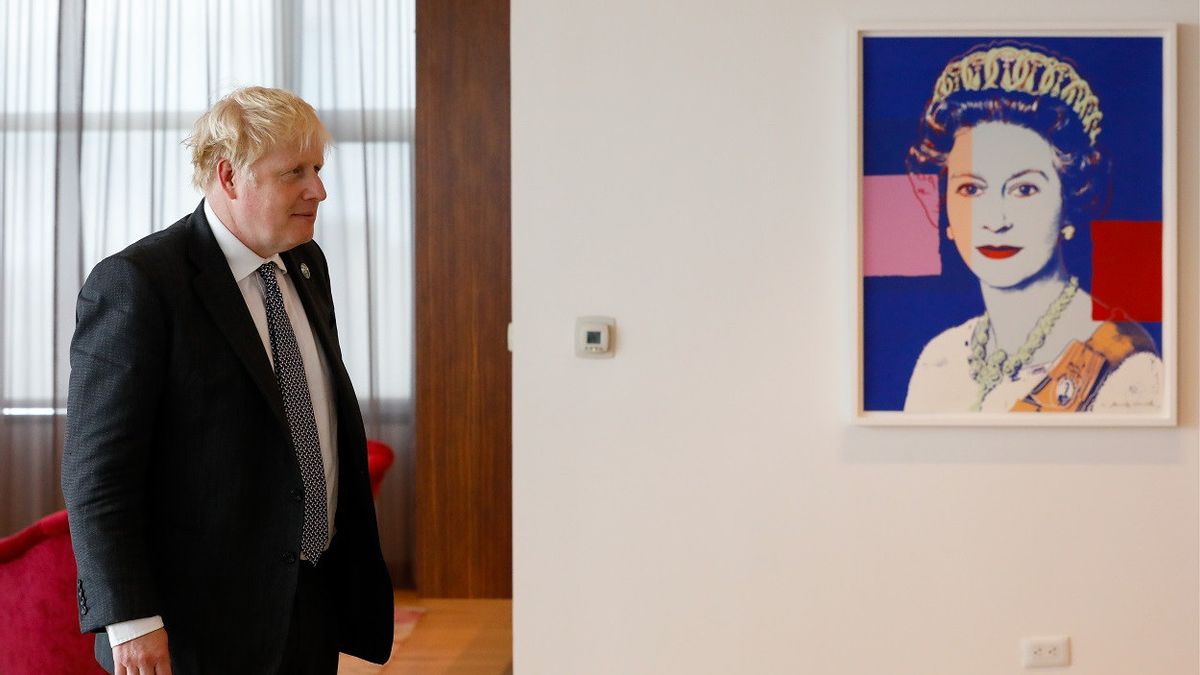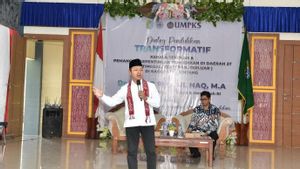JAKARTA - British Prime Minister Boris on Monday said he would end all coronavirus restrictions in Britain, including mandatory self-isolation for people with COVID-19 and free testing, causing skepticism from some scientists and political opponents.
PM Johnson's 'living with COVID' plan has sparked alarm, it is premature and will leave the UK vulnerable to a new virus variant. But the government says it has provided more testing than most other countries, and now has to cut costs.
The plan to remove the remaining restrictions is a priority for many of Johnson's Conservative Party lawmakers, whose dissatisfaction with his scandal-ridden leadership has threatened his grip on power. Some critics thought the plan was also an attempt to distract from the scandal.
The UK has so far reported 160,00 deaths from COVID-19, the seventh-highest death toll in the world.
PM Johnson is moving to lift any pandemic terms that violate personal liberties, saying it's time for the public to take responsibility. He will rely more heavily on the launch of booster vaccines, with the government offering extra booster doses for the most vulnerable, as well as other drug interventions such as antiviral treatments.
"Restrictions are taking a heavy toll on our economy, our society, our mental well-being and on our children's chances of survival, and we don't have to pay those costs anymore," he told Parliament.
"So let's learn to live with this virus and continue to protect ourselves and others without limiting our freedom."
PM Johnson said the legal requirement to self-isolate for people who tested positive for COVID would be removed on February 24. While the free universal test will end on April 1st.
Meanwhile, the Scotland, Wales and Northern Ireland Administrations have set their own COVID-19 restrictions, but the amount of money they will have to spend on testing will flow from decisions made by the UK government.
Scottish First Minister Nicola Sturgeon wrote scathingly on Twitter: "To allow the significant dismantling of the testing infrastructure built in the last two years would be an inexcusable omission given the ongoing risks."
Nonetheless, PM Johnson said some surveillance of the coronavirus would remain, allowing for a rapid response to new variants, which could be rapidly scaled up.
However, he cited the very weak association between COVID-19 cases and deaths from vaccines, antivirals and the lower severity of the Omicron variant as informing his decision.
"Just because we know Omicron isn't that severe, the testing for Omicron at the colossal scale we've done has become less important and less valuable in preventing serious disease," he said.
"This comes at a very big cost. We must now reduce this," continued PM Johnson.
In addition, PM Johnson said symptomatic tests will remain available to at-risk groups and social care staff, will work with retailers to allow anyone who wants to purchase the test.
To note, leaders in Scotland and Wales had criticized Johnson's plans to reduce testing availability prior to the announcement, while opposition leader Keir Starmer also said the plans were not well understood.
"We cannot turn off British radar before the war is won. 'Ignorance is bliss' is not a responsible approach to a deadly virus," Labor leader Starmer criticized.
The English, Chinese, Japanese, Arabic, and French versions are automatically generated by the AI. So there may still be inaccuracies in translating, please always see Indonesian as our main language. (system supported by DigitalSiber.id)













